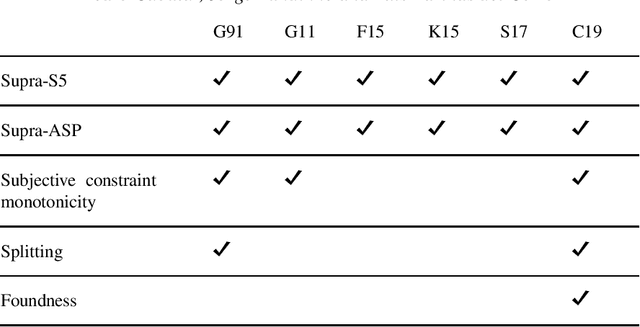Splitting Epistemic Logic Programs
Paper and Code
Dec 20, 2018
Epistemic logic programs constitute an extension of the stable models semantics to deal with new constructs called subjective literals. Informally speaking, a subjective literal allows checking whether some regular literal is true in all stable models or in some stable model. As it can be imagined, the associated semantics has proved to be non-trivial, as the truth of the subjective literal may interfere with the set of stable models it is supposed to query. As a consequence, no clear agreement has been reached and different semantic proposals have been made in the literature. Unfortunately, comparison among these proposals has been limited to a study of their effect on individual examples, rather than identifying general properties to be checked. In this paper, we propose an extension of the well-known splitting property for logic programs to the epistemic case. To this aim, we formally define when an arbitrary semantics satisfies the epistemic splitting property and examine some of the consequences that can be derived from that, including its relation to conformant planning and to epistemic constraints. Interestingly, we prove (through counterexamples) that most of the existing proposals fail to fulfill the epistemic splitting property, except the original semantics proposed by Gelfond in 1991.
 Add to Chrome
Add to Chrome Add to Firefox
Add to Firefox Add to Edge
Add to Edge